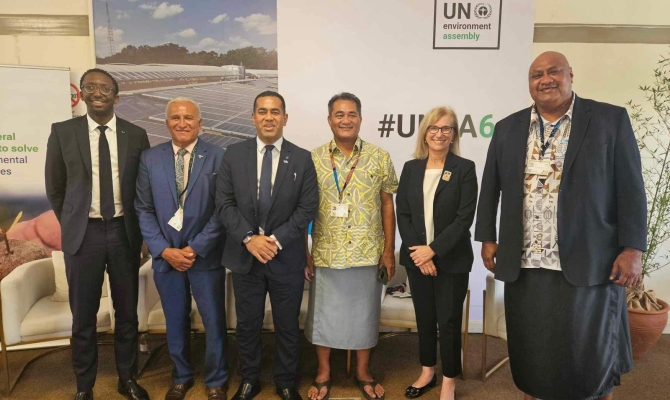
Environmental practitioners and officials from across the globe converged at the United Nations Environment Programme (UNEP) headquarters in Nairobi, Kenya for the sixth session of the United Nations Environment Assembly (UNEA-6) from 26 February to 1 March 2024.
As the highest decision-making body on the environment, the Assembly through its resolutions and calls to action, provides leader and catalyses intergovernmental action on the environment.
Under this year’s theme of, "Effective, inclusive and sustainable multilateral action to tackle climate change, biodiversity loss and pollution”, the Assembly adopted 15 resolutions to advance the collaborative response to the triple planetary crises.
The resolutions fall under the five Clusters of UNEA, focusing on pollution and sound management of chemicals and waste, loss of nature while restoring ecosystems, environmental governance, root causes of climate change, nature and biodiversity loss and pollution and finally, procedural, and administrative matters.
A strong Pacific Islands presence was at UNEA-6 with the attendance of officials from Cook Islands, Federated States of Micronesia, Fiji, Nauru, Palau, Samoa, Tonga, Tuvalu and Vanuatu.
“The UNEA is not only the highest decision-making body for the environment but also has a global membership that provides an overarching platform for resolutions in the protection and management of the environment,” said Mr Sefanaia Nawadra, Director General of the Secretariat of the Pacific Regional Environment Programme (SPREP), who was present in Nairobi in support of Pacific countries.
“It is therefore important for the Pacific to be seated at the table and engaged in the decision-making process. We stand with our Members in supporting them at the table and undertaking actions on the ground in the region for our Pacific resilience.”
SPREP also held a High-Level talanoa side event focused on the 2050 Blue Pacific Strategy, which brought together Ministers from Cook Islands, Fiji, France and Samoa to discuss national contributions in implementing the Blue Pacific Strategy to address the triple planetary crisis.
UNEA resolutions are considered the first step towards the formulation of global environmental treaties and national policies, and the 15 resolutions adopted at UNEA-6 targets some of the Pacific’s most pressing challenges. They urge countries to reduce pollution from waste and chemicals, strengthen ocean efforts to fight climate change, marine biodiversity loss and pollution, combat land degradation, and promote sustainable lifestyles.
“We look forward to the work ahead by us all in this space to address the triple planetary crises of biodiversity loss and climate change, work we do in partnership with our Members and partners,” said Mr Anthony Talouli, SPREP’s Director Waste Management and Pollution Control Programme.
“UNEA, being the highest decision-making body on the environment, catalyses intergovernmental action on the environment. We work to amplify our Pacific voices in this space – helping to propel action and decisions for our resilient Pacific.”
Many Multilateral Environment Agreement’s (MEA) to which Pacific countries are parties to, are due to hold meetings this year, and many of the discussions at UNEA-6 focused on how the multilateral agreements can work closely and encourage parties to promote synergies and cooperation.
Prior to UNEA-6 is the meeting of the Open-ended Committee of Permanent Representatives (OECPR), held from 19 to 23 February.
The seventh session of the UNEA will take place from 8 to 12 December and the OECPR from 1 to 5 December 2025 at the UNEP Headquarters in Nairobi, Kenya.
The sixth session of the United Nations Environment Assembly (UNEA-6) was held from 26 February to 1 March 2024 at the UNEP headquarters in Nairobi, Kenya, under the theme: Effective, inclusive and sustainable multilateral actions to tackle climate change, biodiversity loss and pollution. Through its resolutions and calls to action, the Assembly provides leadership and catalyses intergovernmental action on the environment.